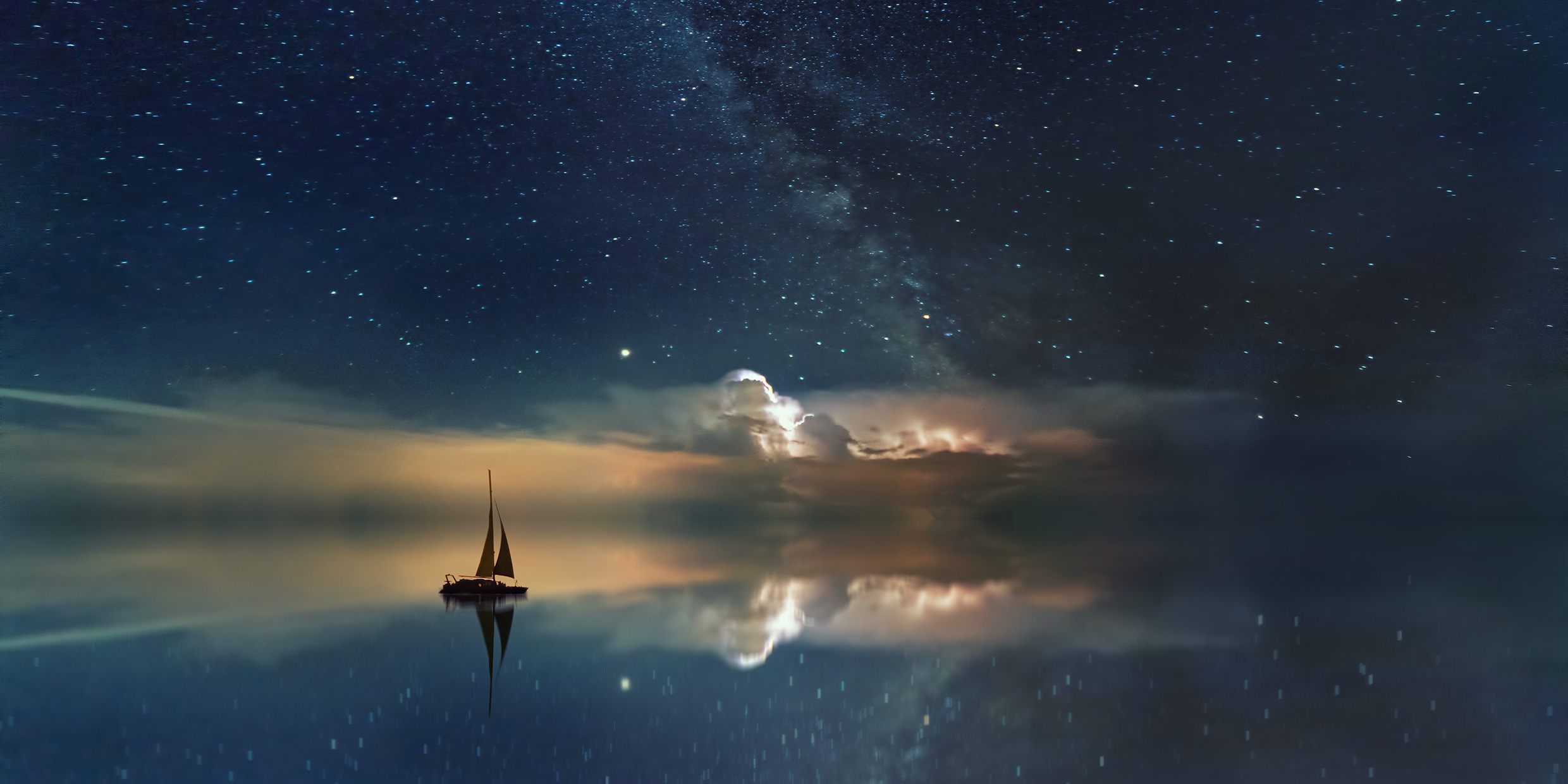Originally published 22 October 2006
In his 1977 book The First Three Minutes, big-bang physicist Steven Weinberg famously concluded: “The more the universe seems comprehensible, the more it also seems pointless.”
Weinberg’s point was this: We have discovered in this century that the human species is just one of billions of species of life on a typical planet near a star that is just one of a trillion stars in a galaxy among hundreds of billions of galaxies. It is no longer possible, he implied, to think that the universe was made for us or that our existence is in any way important on the cosmic scale.
In a book of interviews published 13 years later, Alan Lightman and Roberta Brawer asked 27 famous cosmologists for their responses to to Weinberg’s remark. Some of the cosmologists agreed with Weinberg. Some emphatically disagreed. Responses ranged from traditional religious affirmation to total indifference. Apparently, 27 of the world’s most brilliant mathematicians and physicists are no better than the rest of us at figuring out the human meaning of the universe.
It occurred to me that I might confront some ordinary people, kids even, with Weinberg’s remark and record their reactions.
For my first interview I called Molly Bloom, an old friend in Dublin, Ireland. It was very late at night when I spoke to Molly on the phone (I had forgotten the five hour time difference). We talked about nature a bit, and what it all might mean. When I quoted Weinberg’s remark she responded with some agitation:
“God in heaven there’s nothing like nature the wild mountains then the sea and the waves rushing then the beautiful country with fields of oats and wheat and all kinds of things and all the fine cattle going about that would do your heart good to see rivers and lakes and flowers all sorts of shapes and smells and colours spring up even out of the ditches primroses and violets nature it is as for them saying theres no God I wouldn’t give a snap of my two fingers for all their learning why don’t they go and create something I often asked him atheists or whatever they call themselves go and wash the cobbles off themselves first then they go howling for the priest and they dying and why why because they’re afraid of hell on account of their bad conscience ah yes I know them well who was the first person in the universe before there was anybody that made it all who ah that they don’t know neither do I so there you are they might as well try to stop the sun from rising tomorrow…”
Excited by Molly’s unpunctuated enthusiasm, I gave a call to Huck Finn, a friend of my youth from Hannibal, Missouri. How did he respond to Weinberg’s impression of pointlessness, I asked. Huck was thoughtful, and then answered by recalling something that happened when he and a pal named Jim were drifting down the Mississippi River on a raft.
“It’s lovely to live on a raft,” said Huck, his voice choked with nostalgia. “We had the sky up there, all speckled with stars, and we used to lay on our backs and look up at them, and discuss about whether they was made or only just happened.”
“That question is certainly related to Weinberg’s observation,” I suggested, “especially when you consider the size and complexity of the universe. There’s a heck of a lot of stars out there.”
“Jim he allowed they was made,” said Huck, “but I allowed they happened; I judged it would have took too long to make so many.”
“Ah, yes,” I said. “Many modern cosmologists would seem to agree with you. The number of stars is staggering.”
“Jim said the moon could a laid them,” Huck said. “Well, that looked kind of reasonable, so I didn’t say nothing against it, cause I’ve seen a frog lay most as many.”
I laughed: “I don’t think many contemporary cosmologists would accept the frog-moon theory for the origin of stars.”
My conversation with Huck reminded me of another friend of my youth, a kid from an asteroid called B‑612, if I remember rightly. I never knew his real name; we called him the Little Prince.
Now it happened that he was in the neighborhood for another visit, so I gave him a buzz. We chatted for a while, recalling our earlier affection for one another. Then I quoted Steven Weinberg: “The more the universe seems comprehensible, the more it also seems pointless.”
He laughed, and said, “Where I live everything is so small that I cannot show you where my star is to be found. It is better, like that. My star will be just one of the stars, for you. And so you will love to watch all of the stars in the heavens.”
I wasn’t sure I understood his meaning.
“All men have the stars,” he continued, “but they are not the same things for different people. For some, who are travelers, the stars are guides. For others they are no more than little lights in the sky. For others, who are scholars, they are problems.”
“Like for my twenty-seven cosmologists,” I ventured.
“All these stars are silent,” said the Little Prince, his voice so soft and gentle I could barely make it out over the noisy telephone line. “You — you alone — will have the stars as no one else has them — ”
I was still perplexed. I did not exactly see what this had to do with finding a human meaning in the universe of galaxies.
“In one of the stars I shall be living,” he said. “In one of them I shall be laughing. And so it will be as if all the stars were laughing when you look at the sky at night…You — only you — will have stars that can laugh!”
And he laughed again.



